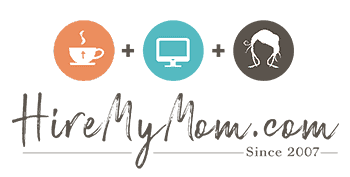5 Tips for a Successful Home Based Interview
If you work from home or desire to work from home, you will likely go through another an interview for a home based position. Interviews are nerve wracking enough at an office location, but those from home can be a little bit more challenging. Between kids and dogs, lack of an in person connection, and various other distractions, finding your calm and professional demeanor may take a few more steps.
Read along for some best practices for home based interviews.
Be Knowledgeable
The number one step in interview prep is to learn all you can about the company. It’s more than useful to have a baseline of knowledge going into your interview. To avoid any surprises, know some basic information about the company and the job position being offered.
This process will be an asset to you that shows that you’ve done your research, showing that you care about obtaining the position and the organization.
Clear Distractions
When you work from home, the biggest barriers to successful calls and meetings are almost always distractions! Between kids, pets, TVs, UPS knocks on the door and so on, it can be tough to find a completely quiet space. Especially if it’s a Skype call, take great care to ensure that distractions are eliminated during your interview! In addition, make sure your background is nice and professional in appearance for Skype calls.
Distractions can also come in the form of your calendar obligations. Make sure that your calendar is cleared so you aren’t rushing or receiving other urgent calls during the interview. Always set aside more time than you think will be necessary, then you can call the kids back in or proceed with other meetings.
Ask Questions
All interviewers want you to ask questions, and it’s important that you think of 3-5 questions to ask ahead of time. A great question is, “What is the company culture?” Even though you’re working from home, company culture is king. It will tell you how your boss works, how often you’ll be managed, how they communicate, how formal the meetings are, and so on. It will also give you a glimpse into the company, and then you’ll be better equipped to decide if it’s a good fit for you.
Other good questions include asking about the direction of the position, what’s expected of you in the position, and what a typical day might consist of.
Take Inventory
Are your social media profiles in good working order? Take a quick audit of your profiles and be sure they’re as professional as possible. Remove any questionable photos, posts, and so on, and if it’s applicable, be sure that you have some quality posts that are relevant to your industry and show your expertise.
Notice any gaps in employment, negative reviews, or anything similar, since employers may bring them up. It’s important to be truthful, but knowing these things ahead of time will leave you time to prepare a proper, professional response.
Make sure that your LinkedIn profile looks especially nice, as it’s the more career-based social media profile. Ask for quality recommendations, thoroughly complete all sections, and work to create meaningful connections to show your professional drive.
Know Your Strengths
Home based work requires a certain type of person with a number of qualities, so be sure to emphasize these in your interview. Are you extremely self-motivated? Do you work well independently? Employers can be a bit nervous to hire workers remotely, and it’s up to you to convince them that you have the necessarily skill set.
Work from home interviews can be just as stressful as traditional interviews! Treat them as a typical interview in an office – dress to impress, eliminate distractions, be prepared and knowledgeable, and ask thoughtful questions. If you do these things well, you’ll be on your way to a satisfying home based job position!
